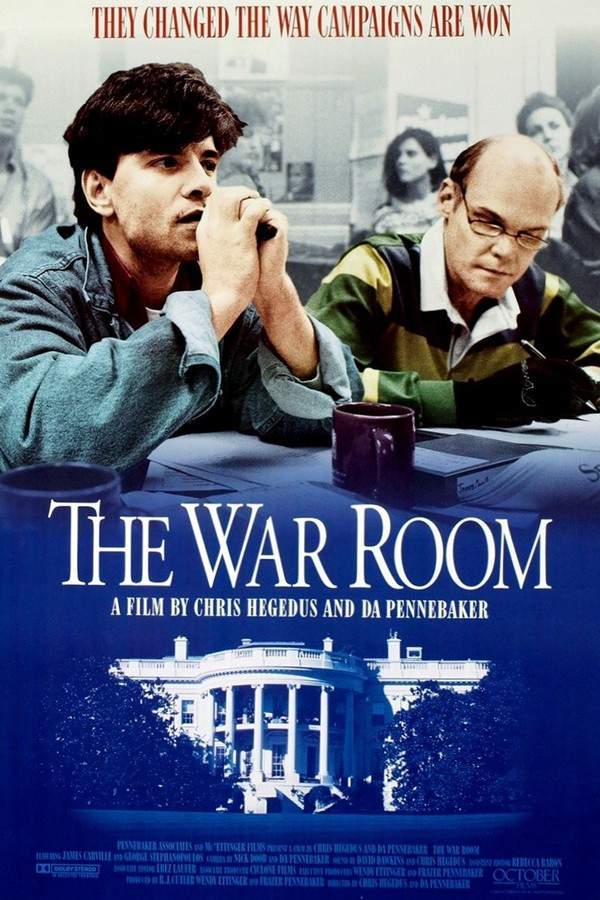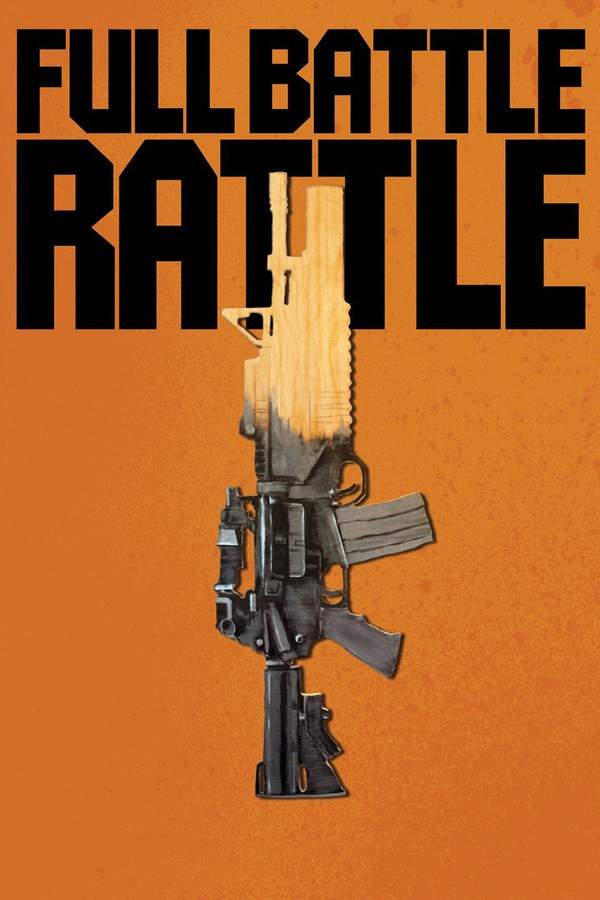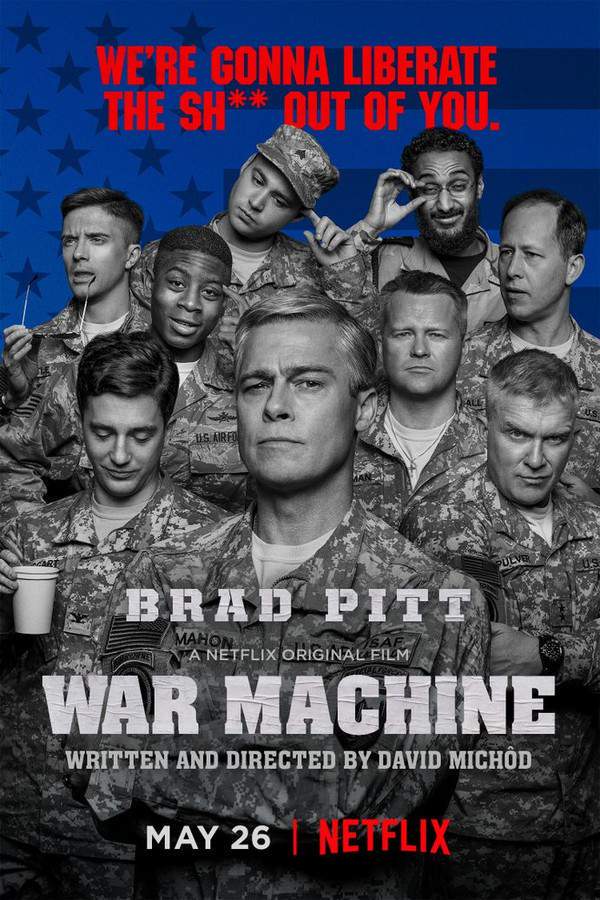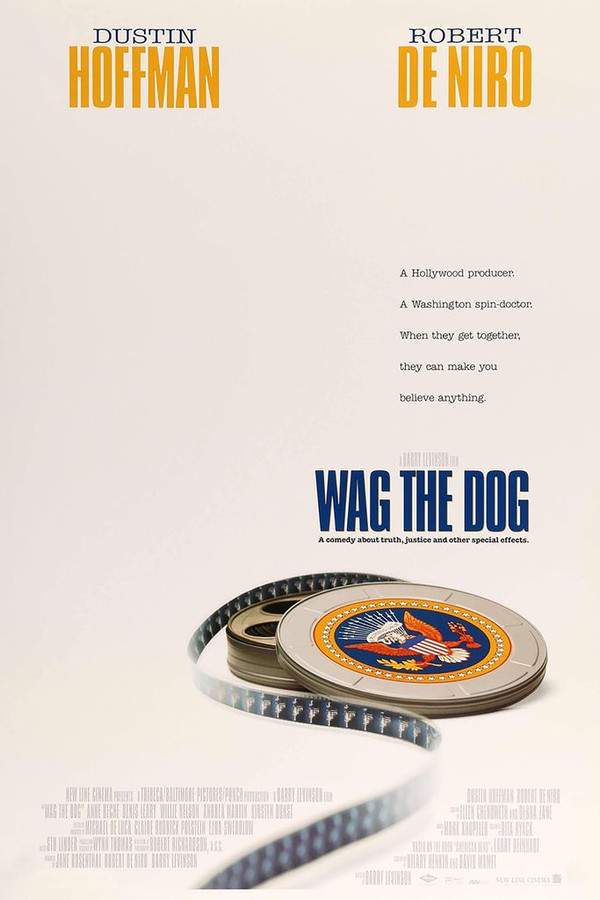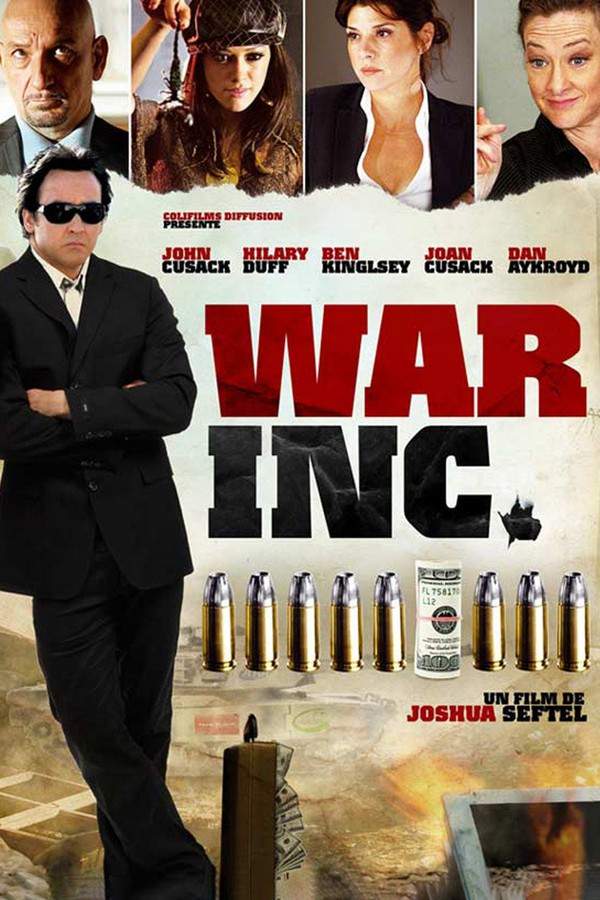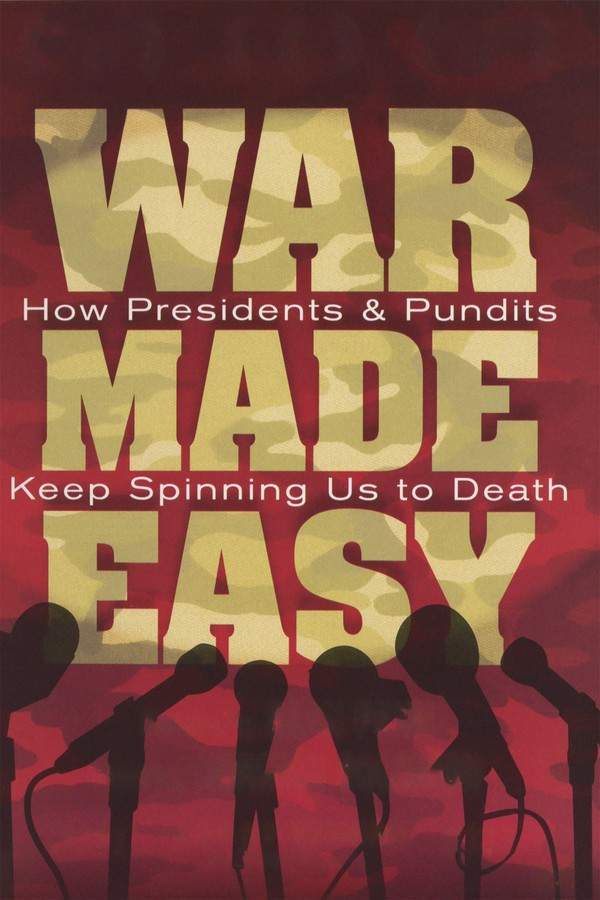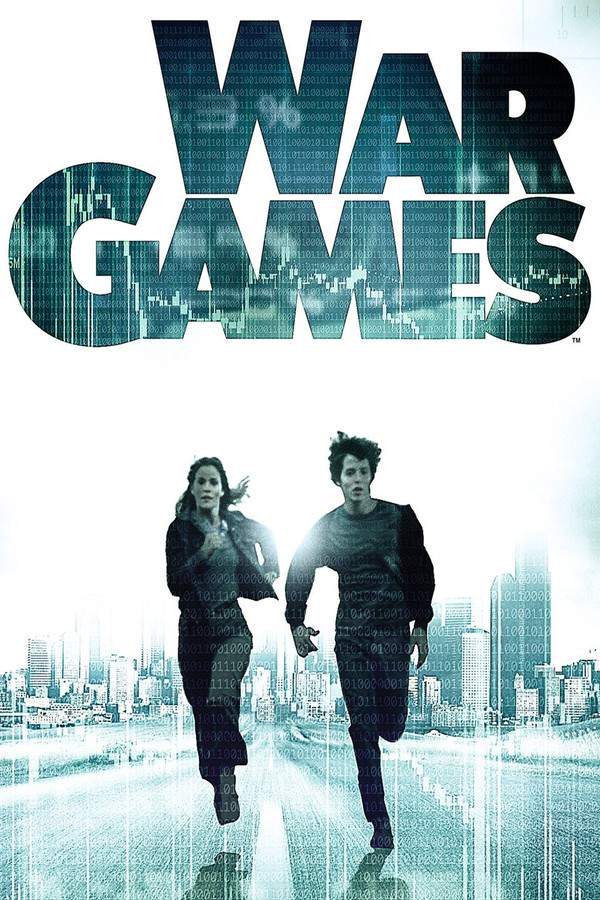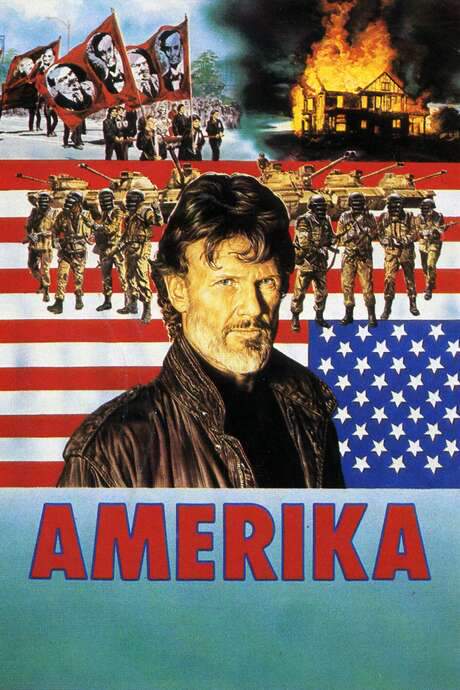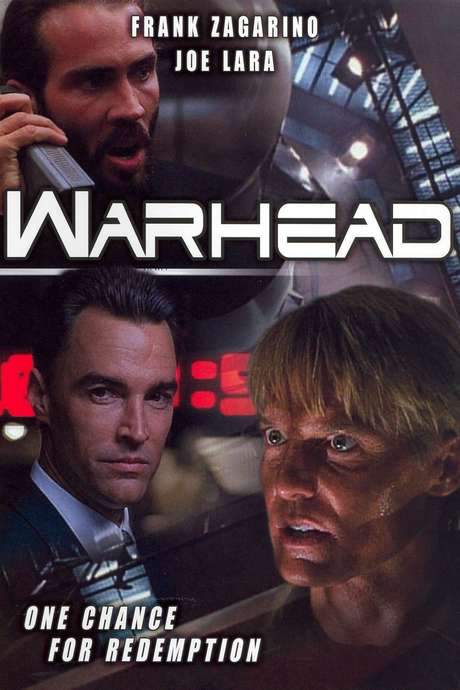War Game 2024
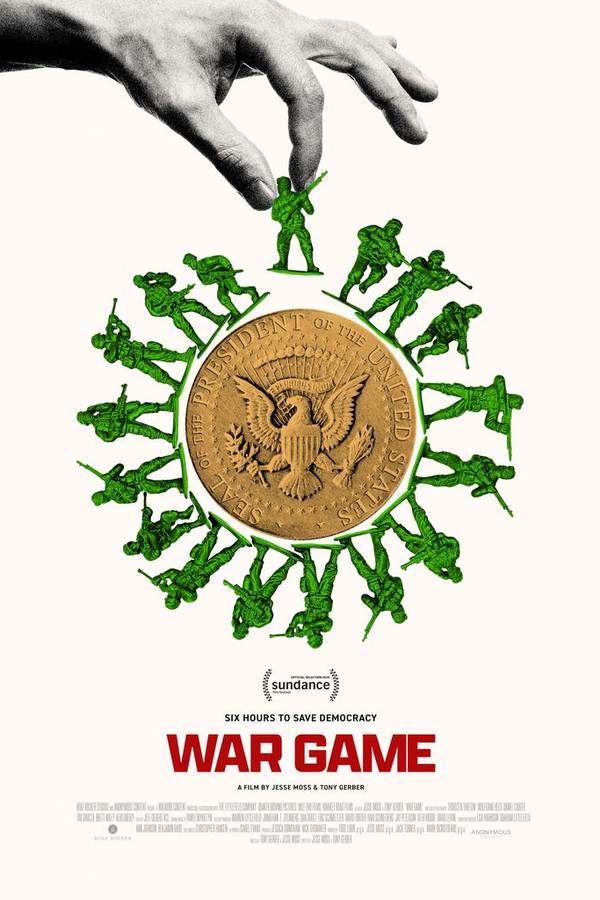
A bipartisan group of former policymakers, simulating a fictional presidential administration, participates in a war game exercise. They are unexpectedly confronted by a coup attempt orchestrated by rogue military forces, creating a tense and unpredictable scenario that explores the fragility of democracy and the potential for crisis in a modern nation. The exercise blurs the line between simulation and reality as the participants grapple with the escalating situation.
Does War Game have end credit scenes?
No!
War Game does not have end credit scenes. You can leave when the credits roll.
Meet the Full Cast and Actors of War Game
Explore the complete cast of War Game, including both lead and supporting actors. Learn who plays each character, discover their past roles and achievements, and find out what makes this ensemble cast stand out in the world of film and television.

Doug Jones
Attorney General

Ralph Brown
Lieutenant General Roger Simms

Wesley Clark
Chairman of the Joint Chiefs of Staff

Chris Henry Coffey
Gov. Robert Strickland

Steve Bullock
President John Hotham

Heidi Heitkamp
Senior Advisor to the President

Linda Singh
Chief, National Guard Bureau

Alexander Vindman
Game Consultant

Elizabeth Neumann
Homeland Security Advisor

Janessa Goldbeck
Game Producer

Jeffrey Buchanan
Commander, USNorthcom

Louis Caldera
Secretary of Defense

Gwen Camp
White House Chief of Staff

Kristofer Goldsmith
Red Cell Leader

Doug Gordon
White House Deputy Communications Director

Chris Jones
Red Cell Operative

William Kristol
Red Cell Operative

Samantha Libraty
Game Consultant

Gary Perez
Lieutenant General Gabriel King

David Priess
Director of National Intelligence
External Links and Streaming Options
Discover where to watch War Game online, including streaming platforms, rental options, and official sources. Compare reviews, ratings, and in-depth movie information across sites like IMDb, TMDb, Wikipedia or Rotten Tomatoes.
Ratings and Reviews for War Game
See how War Game is rated across major platforms like IMDb, Metacritic, and TMDb. Compare audience scores and critic reviews to understand where War Game stands among top-rated movies in its genre.

The Movie Echo Score
War Game delivers a timely, politically charged documentary that provokes both alarm and debate. Critics generally commend its provocative premise and realistic simulation, while some note uneven execution and a lack of resolution. Viewers echo this split, with many praising its urgency and emotional impact, yet a minority find the pacing and soundtrack detract from engagement. The net impression is a compelling yet imperfect work that resonates strongly with audiences concerned about democratic fragility.
The Movie Echo Score Breakdown for War Game

Art & Craft
In terms of direction and visual construction, War Game combines a slick, high‑production aesthetic with moments of theatrical staging. Critics acknowledge the effective use of replica sets and dynamic camera work that heighten the documentary’s immediacy, though some describe the execution as stilted. Viewer feedback reflects similar views, praising the polished look while noting occasional unevenness. Overall, the film’s artful presentation supports its narrative, albeit with minor inconsistencies.

Character & Emotion
When evaluating performances, the documentary relies on real participants whose expertise lends authenticity. Critics highlight the depth of insight from seasoned officials and commend the nuanced portrayal of tension, calling it compelling. Audience reactions echo this, with many noting the gripping and superbly acted interactions that amplify emotional resonance. A minority find character development limited, yet the overall consensus affirms strong character work that anchors the film’s impact.

Story & Flow
Regarding narrative structure, War Game presents a hypothetical crisis that feels urgent and timely. Critics praise its relevance and the ticking‑clock tension, though some criticize the lack of a satisfying resolution and an uneven pacing. Viewer comments mirror this split, with many finding the scenario riveting and thought‑provoking, while others describe it as meandering or lacking depth. The story thus succeeds in raising questions despite structural shortcomings.

Sensory Experience
In terms of sensory experience, the film’s sound design draws mixed reactions. Critics and users alike note a pervasive droning soundtrack that many find distracting, while others appreciate the verité ambience created by on‑set recordings. Visual style is described as slick and cinematic, yet occasional theatricality is cited as reducing immersion. Overall, the sensory elements contribute to tension but are hampered by an uneven auditory presentation.

Rewatch Factor
The rewatch factor of War Game is marked by its lingering relevance and the intensity of its scenario. Critics observe that the initial visceral impact may soften on a second viewing, yet the film’s realistic depiction continues to resonate. Many users express a desire to share the documentary widely, indicating repeat interest, while a few cite repetitive pacing that reduces subsequent enjoyment. Consequently, the film offers solid replay value for audiences invested in its political themes.

71
Metascore
4.3
User Score


80%
TOMATOMETER

61%
User Score

/10
IMDb Rating

52
%
User Score

3.1
From 3 fan ratings

0.00/5
Take the Ultimate War Game Movie Quiz
Challenge your knowledge of War Game with this fun and interactive movie quiz. Test yourself on key plot points, iconic characters, hidden details, and memorable moments to see how well you really know the film.
War Game Quiz: Test your knowledge about the film 'War Game' and its intriguing exploration of automated warfare and the human condition.
What does WOPR stand for?
War Operation Plan Response
World Operational Plan Review
War Operations Protocol Research
Warfare Operations Plan Resource
Show hint
Awards & Nominations for War Game
Discover all the awards and nominations received by War Game, from Oscars to film festival honors. Learn how War Game and its cast and crew have been recognized by critics and the industry alike.
77th Writers Guild of America Awards 2025
Best Documentary Screenplay
Full Plot Summary and Ending Explained for War Game
Read the complete plot summary of War Game, including all major events, twists, and the full ending explained in detail. Explore key characters, themes, hidden meanings, and everything you need to understand the story from beginning to end.
During a surprise nuclear attack drill, many United States Air Force Strategic Missile Wing controllers prove unwilling to turn the keys required to launch a missile strike. Such refusals convince John McKittrick and other North American Aerospace Defense Command (NORAD) systems engineers that missile launch control centers must be automated, without human intervention. Control is given to a NORAD supercomputer known as WOPR (War Operation Plan Response, pronounced “whopper”), or Joshua, programmed to continuously run war simulations and learn over time.
David Lightman, a bright but unmotivated Seattle high school student and hacker, uses his IMSAI 8080 computer and modem to access the school district’s computer system and change the grades for himself and his friend and classmate, Jennifer Mack. Later, while war dialing numbers in Sunnyvale, California, to find a computer game company, he connects with a system that does not identify itself. Asking for games, he finds a list including chess, checkers, backgammon and poker, along with titles such as “Theaterwide Biotoxic and Chemical Warfare” and “Global Thermonuclear War”, but cannot proceed further. Two hacker friends explain the concept of a backdoor password and suggest tracking down the Falken referenced in “Falken’s Maze”, the first game listed. David discovers that Stephen Falken was an early artificial-intelligence researcher, and guesses correctly that the name of Falken’s deceased son (Joshua) is the password.
Unaware that the Sunnyvale phone number connects to WOPR at the Cheyenne Mountain Complex, David initiates a game of Global Thermonuclear War, playing as the Soviet Union while targeting American cities. The computer starts a simulation that briefly convinces NORAD military personnel that actual Soviet nuclear missiles are inbound. While they defuse the situation, WOPR nonetheless continues the simulation to trigger the scenario and win the game, as it does not understand the difference between reality and simulation. It continuously feeds false data such as Soviet bomber incursions and submarine deployments to NORAD, pushing them to increase the DEFCON level toward a retaliation that will start World War III.
David learns the true nature of his actions from a news broadcast, and FBI special agents arrest him and take him to NORAD. He realizes that WOPR is behind the NORAD alerts, but he fails to convince McKittrick (who believes David is working for the Soviets) and is charged with espionage. David escapes NORAD by joining a tourist group and, with Jennifer’s help, travels to the Oregon island where Falken lives under the alias “Robert Hume”. David and Jennifer find that Falken has become despondent, believing that nuclear war is inevitable and as futile as a game of tic-tac-toe between two experienced players. The teenagers convince Falken that he should return to NORAD to stop WOPR.
WOPR stages a massive Soviet first strike with hundreds of missiles, submarines, and bombers. Believing the attack to be genuine, NORAD prepares to retaliate. Falken, David, and Jennifer convince military officials to delay the second strike and ride out the supposed attack until actual weapons impacts are confirmed. When the targeted American bases report back unharmed, NORAD prepares to cancel the retaliatory second strike. WOPR tries to launch the missiles on its own using a brute-force attack to obtain the launch codes. Without humans in the control centers as a safeguard using the two-man rule, the computer will trigger a mass launch. All attempts to log in and order WOPR to cancel the countdown fail. Disconnecting the computer is discussed and dismissed, as a fail-deadly mechanism will launch all weapons if the computer is disabled.
Falken and David direct the computer to play tic-tac-toe against itself. This results in a long string of draws, forcing the computer to learn the concept of futility and no-win scenarios. WOPR obtains the launch codes, but before launching, it cycles through all the nuclear war scenarios it has devised, finding that they all result in draws as well. Having discovered the concept of mutual assured destruction (“WINNER: NONE”), the computer tells Falken it has concluded that nuclear war is “a strange game” in which “the only winning move is not to play.” WOPR relinquishes control of NORAD and the missiles and offers to play “a nice game of chess”.
Uncover the Details: Timeline, Characters, Themes, and Beyond!

Coming soon on iOS and Android
The Plot Explained Mobile App
From blockbusters to hidden gems — dive into movie stories anytime, anywhere. Save your favorites, discover plots faster, and never miss a twist again.
Sign up to be the first to know when we launch. Your email stays private — always.
Watch Trailers, Clips & Behind-the-Scenes for War Game
Watch official trailers, exclusive clips, cast interviews, and behind-the-scenes footage from War Game. Dive deeper into the making of the film, its standout moments, and key production insights.
War Game Themes and Keywords
Discover the central themes, ideas, and keywords that define the movie’s story, tone, and message. Analyze the film’s deeper meanings, genre influences, and recurring concepts.
War Game Other Names and Titles
Explore the various alternative titles, translations, and other names used for War Game across different regions and languages. Understand how the film is marketed and recognized worldwide.
Similar Movies To War Game You Should Know About
Browse a curated list of movies similar in genre, tone, characters, or story structure. Discover new titles like the one you're watching, perfect for fans of related plots, vibes, or cinematic styles.
Quick Links: Summary, Cast, Ratings, More

What's After the Movie?
Not sure whether to stay after the credits? Find out!
Explore Our Movie Platform
New Movie Releases (2026)
Famous Movie Actors
Top Film Production Studios
Movie Plot Summaries & Endings
Major Movie Awards & Winners
Best Concert Films & Music Documentaries
Movie Collections and Curated Lists
© 2026 What's After the Movie. All rights reserved.















